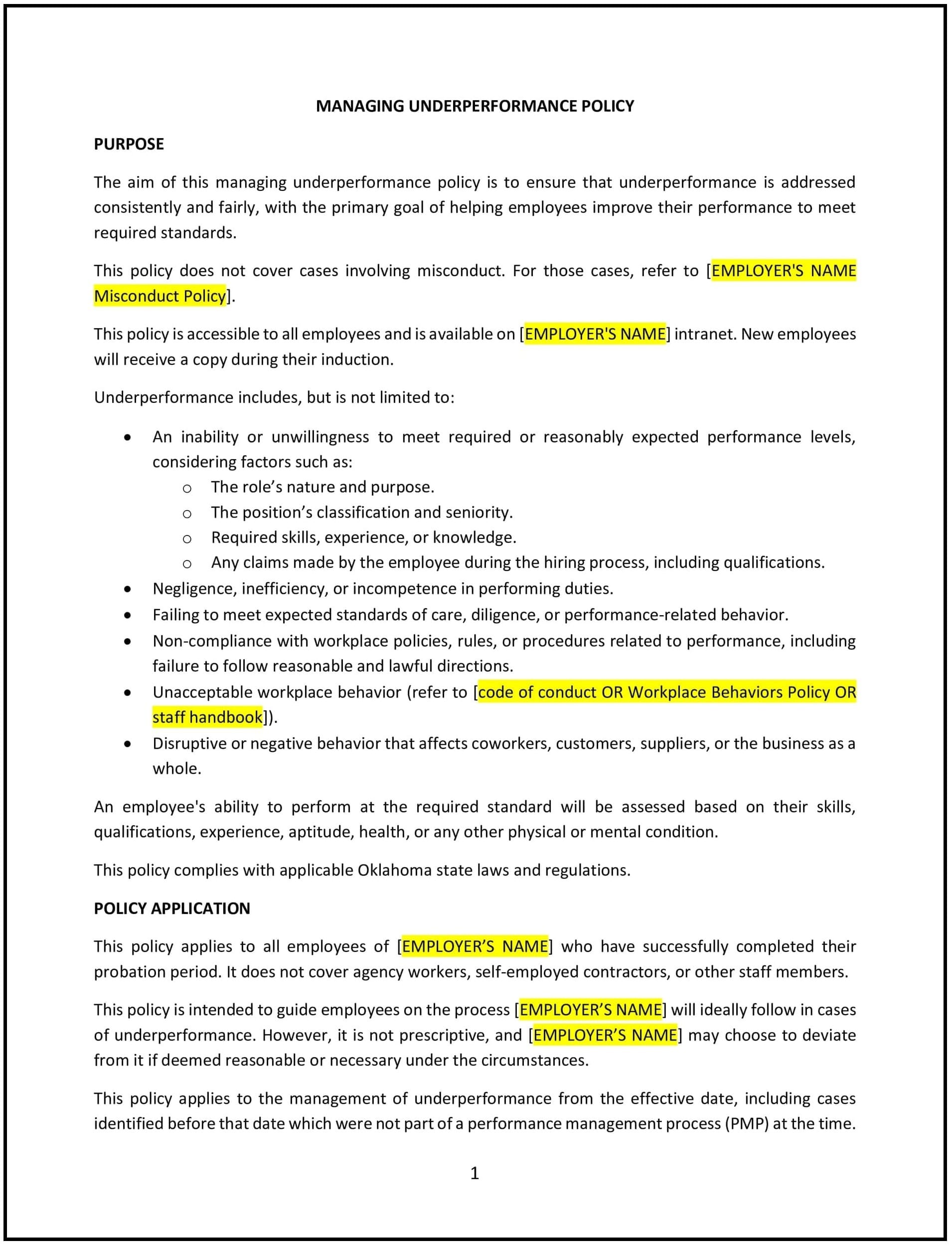Managing underperformance policy (Oklahoma): Free template
Got contracts to review? While you're here for policies, let Cobrief make contract review effortless—start your free review now.

Customize this template for free
Managing underperformance policy (Oklahoma)
This managing underperformance policy is designed to help Oklahoma businesses establish clear guidelines for addressing employee performance issues. The policy outlines expectations, feedback mechanisms, and corrective action steps to ensure fairness and consistency when managing underperformance.
By implementing this policy, businesses can improve productivity, support employee development, and reduce legal risks associated with termination decisions.
How to use this managing underperformance policy (Oklahoma)
- Define performance expectations: Clearly outline job responsibilities and key performance indicators for employees.
- Identify underperformance: Establish criteria for recognizing performance issues, such as missed deadlines, low-quality work, or lack of engagement.
- Implement feedback and coaching: Require managers to provide timely, constructive feedback and guidance on improvement.
- Set performance improvement plans (PIPs): Outline structured improvement plans, including measurable goals, deadlines, and support mechanisms.
- Address consequences for continued underperformance: Define potential outcomes, such as role reassignment, additional training, or termination if necessary.
- Document all performance discussions: Maintain written records of feedback, coaching sessions, and performance reviews.
- Review regularly: Assess the policy periodically to align with best practices and Oklahoma employment laws.
Benefits of using this managing underperformance policy (Oklahoma)
Implementing this policy provides several advantages for Oklahoma businesses:
- Improves workplace productivity: Encourages employees to meet performance expectations and contribute effectively.
- Ensures consistency in performance management: Standardizes how underperformance is identified and addressed.
- Reduces legal risks: Provides documentation to support fair and objective decision-making in performance-related actions.
- Encourages employee development: Helps struggling employees receive training and support to improve.
- Reflects Oklahoma-specific employment considerations: Aligns with local workplace culture and HR best practices.
Tips for using this managing underperformance policy (Oklahoma)
- Provide clear expectations: Ensure employees understand job duties and performance benchmarks from the start.
- Act early: Address performance concerns as soon as issues arise rather than waiting for formal reviews.
- Offer support and training: Provide employees with opportunities to improve through coaching, mentorship, or additional training.
- Keep communication professional: Use a constructive approach to feedback that focuses on solutions rather than blame.
- Adjust policies as needed: Update performance management procedures based on business needs and industry trends.